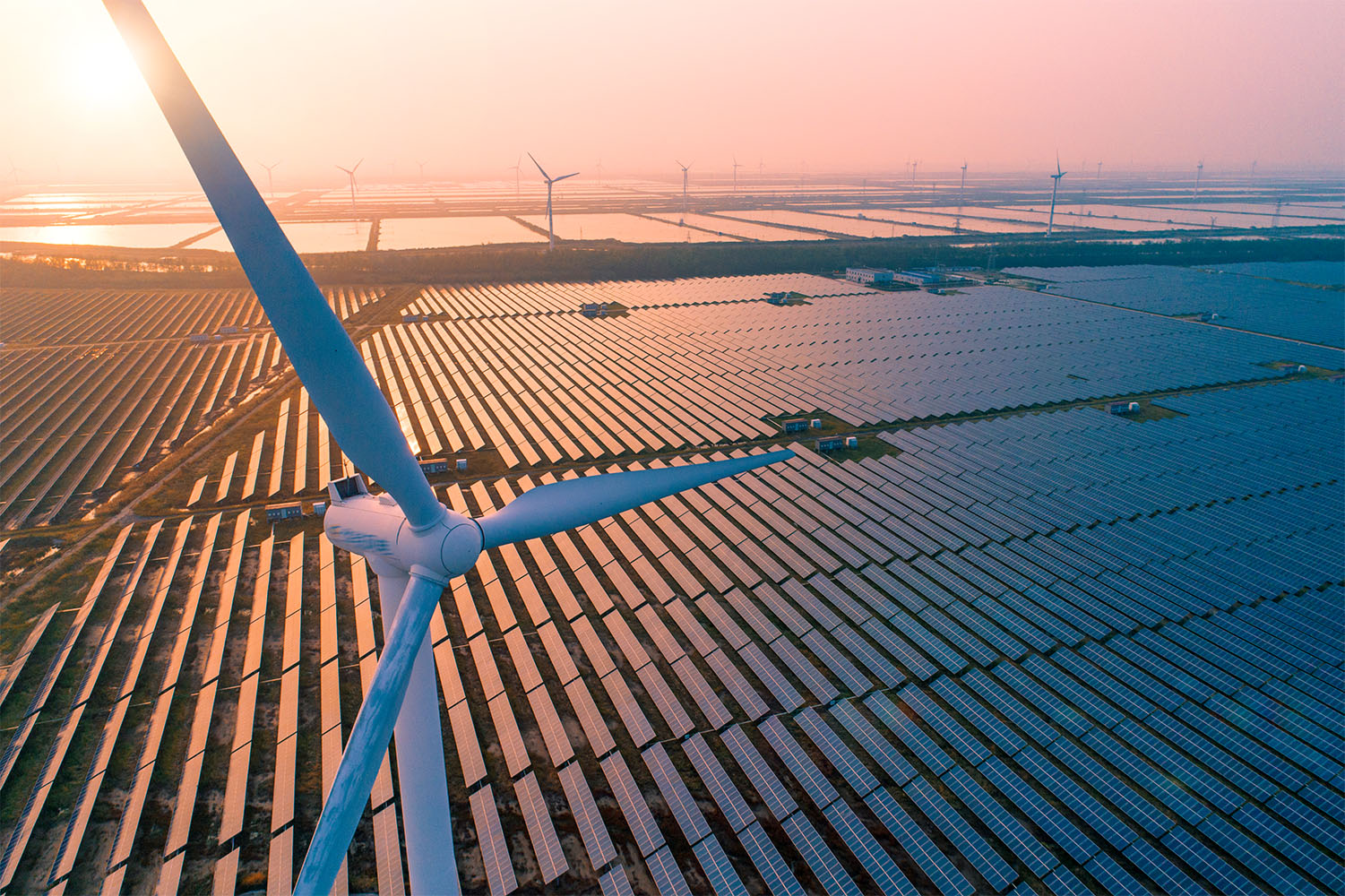Spanish lawmakers close 2022 with activity in the environmental and energy sector
Published on 30th December 2022
The last quarter of 2022 has been a period with many new developments in the electricity sector, particularly in the field of renewable energy, as well as in the field of spatial planning, urban planning and the environment.

Offshore wind energy
On 16 December, the Spanish Official State Gazette published the resolution of 2 December 2022 of the General Directorate for Quality and Assessment, which formulates the strategic environmental declaration of the Maritime Spatial Management Plans (hereinafter, "POEM"), and which constitutes the first step towards the approval of the referred POEMs.
The strategic environmental declaration introduces certain changes to the draft of the POEMs, namely the elimination of the priority use zones for offshore wind energy, which were one of the areas chosen for the implementation of wind farms, and introduces the areas of high potential for the development of offshore wind energy (hereinafter, called "ZAPER").
In addition, the following criteria are introduced for the development of wind farms in ZAPERs:
- Acoustic studies should be carried out for better environmental monitoring.
- They should aim to cause the least visual impact on land, particularly from tourist areas, well-established residential areas and protected heritage features along the coast.
- Corrective measures must be introduced to avoid impacts on fishing grounds.
- They will have to respect the environmental and territorial protection provisions of the land in the areas where the entry and connection to the electricity grid is to be carried out.
Renewable projects in Castilla y León
In the context of accelerating the implementation of renewable energies in Castilla y León, Decree-Law 4/2022, of 27 October, amended (i) the Castilla y León Environmental Prevention Law; and (ii) Decree-Law 2/2022, which introduced criteria for the authorisation of renewable energy projects.
These amendments aim to further promote the electrification of the economy in parallel with the deployment of renewable energies and self-consumption.
The amendments to the Environmental Prevention Law are adopted in order to clarify those development planning instruments that do not have significant effects on the environment, as well as to specify the amendments to such instruments which do not have significant effects on the environment either.
The amendments to Decree-Law 2/2022 are introduced to exempt renewable energy generation facilities with a maximum installed capacity of 2 MW, those included in the self-consumption regime with a maximum installed capacity of 10 MW, as well as facilities that aim to maximise evacuation capacity through hybridisation projects with existing generation facilities, and actions to repower wind farms in operation, from the criteria for authorisation of renewable energy projects.
Territorial Planning in Andalusia
In Andalusia, (i) Decree-Law 11/2022, of 29 November, amending Law 7/2021, of 1 December, on the promotion of territorial sustainability in Andalusia, known as LISTA; and (ii) Decree 550/2022, of 29 November, approving the General Regulation of the LISTA, have been approved.
The amendments introduced in the LISTA guarantee the application of several precepts in accordance with Spanish government soil legislation. It also regulates the public functions of urban planning activity, the principle of sustainable development, and lay the basis for the adoption of public-private partnership instruments in the processes of soil transformation and in the definition of the system of urban planning instruments.
On the other hand, the adoption of the General Regulation of the LISTA specifies the legal framework in the field of territorial and urban planning. It details the procedures for the processing of urban planning titles necessary for intervention on the land, and creates the certifying urban development entities, configured as an instrument of public-private collaboration to provide support to the City Councils, which will speed up the procedures linked to the processing of town planning titles, as is already happening in other Autonomous Communities.
Remuneration parameters of standard facilities
On 14 December 2022, Order TED/1232/2022 of 2 December was published in the Spanish Official State Gazette, updating the remuneration parameters of the standard facilities, applicable to certain electricity production installations which use renewable energy sources, cogeneration and waste, for the purposes of their application to 2022.
This Order updates the remuneration parameters of the standard facilities and establishes the values of the remuneration for investment and, where appropriate, the values of the remuneration for operation for the year 2022, with the exception of standard facilities whose operating costs depend essentially on the price of fuel, for which are established the values of the remuneration for operation corresponding to the first half of 2022.
Renewable deployment in the pipeline
EU energy ministers agreed on 24 November 2022 on the content of the European Council Regulation establishing a temporary framework to accelerate in the short term the deployment and authorisation of renewable energy generation projects, which is expected to be adopted in the coming weeks.
The measures agreed include the declaration of the overriding public interest of renewable energy projects for the purposes of the applicable environmental legislation, as well as the simplification of the authorisation framework for the repowering of installations and exemptions from some environmental assessment obligations for certain technologies, such as energy storage.
Public information on the regulatory sandbox
Among the regulations that have started their public information phase in the last quarter is the proposed ministerial order announcing access to the regulatory sandbox, provided for in Royal Decree 568/2022, of 11 July, which establishes the general framework of the regulatory sandbox for the promotion of research and innovation in the electricity sector.
The order will allow experimental pilot projects, limited in volume, duration and geographical scope, to be carried out in the regulatory sandbox. In order to access the regulatory sandbox, experimental pilot projects will have to provide evidence that a regulatory innovation of interest in the field of energy is proposed, for which they may benefit from a regulatory exemption in order to carry out the project in a safe and controlled environment.
The purpose of the sandbox projects is regulatory learning, in order to contribute to the achievement of energy and climate and environmental sustainability objectives, as well as the participation of new actors in the electricity system, the emergence of new services, and different interactions between technologies and actors.
The period for lodging allegations to the proposed order is open from Wednesday 14 December 2022 until Tuesday 17 January 2023.
A new Mining Law
The Spanish Ministry for Ecological Transition and the Demographic Challenge has initiated a public consultation for the adoption of a new mining law, which will replace the current law, in force since 1973.
This new mining law, and its future regulatory development, represents one of the measures included in the Spanish country strategy "Roadmap for the sustainable management of Mineral Raw Materials" approved by agreement of the Spanish Council of Ministers on 30 August 2022.
The main objectives of the future mining law and its regulatory development is to respond to the challenges of the energy transition. Therefore, the future mining law will introduce improvements in the regulatory framework for mining activities, in order to reconcile these activities with environmental protection values and to respond to the demands for materials and raw materials required for the energy transition.
Likewise, the future mining law will clarify the distribution of competences in this area between the State and the Autonomous Communities, harmonising it with the distribution of competences in environmental and general sectoral matters.
If you would like to know more about the new regulatory and energy sector legislation and its possible implications, please do not hesitate to contact one of our experts listed below or your usual contact at Osborne Clarke.





